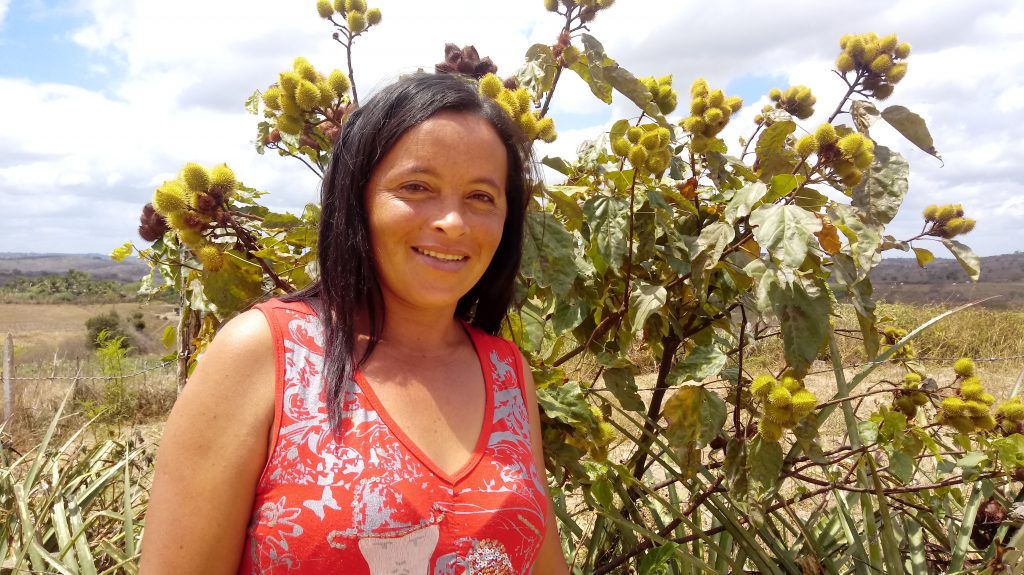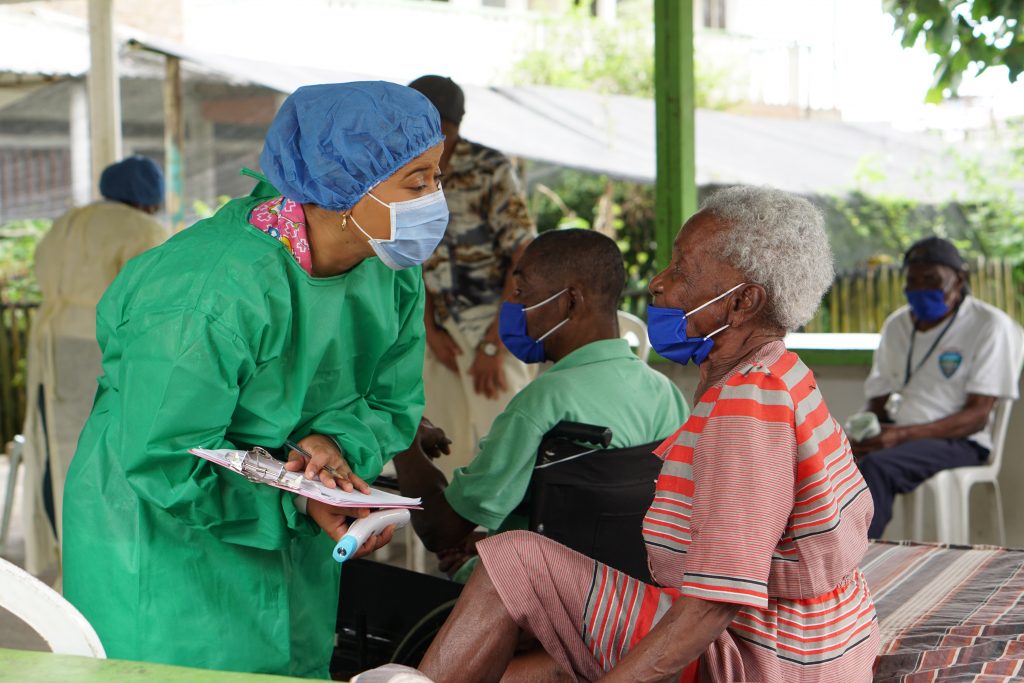As the Covid-19 crisis continues to evolve, our local women-led teams are reaching over 25 million people across 40 countries. Like all emergencies and humanitarian crises, the pandemic is affecting women and the most marginalized (including homeless populations, informal workers, migrant laborers, and survivors of violence) first and hardest.
While it may seem like the pandemic is starting to come to an end in the United States, other parts of the world won’t see an end to its impacts for many years to come. Already we know that some countries could be waiting until 2024 for widespread vaccination. That’s why our colleagues and partners are doubling down on sharing essential public health information with these vulnerable communities and supporting essential services such as emergency shelters for women at risk of domestic violence.
Across the Americas, ActionAid is working in Bolivia, Brazil, Colombia, Guatemala, Haiti, and Peru with local partners and women’s groups. We are distributing hygiene and disinfection kits, offering gender-based violence trainings and psychosocial support, and providing food kits, food vouchers and cash transfers to help people meet their immediate needs.
Here are a few stories from the frontlines:
Brazil

In Brazil, we have been providing nutritious food to families while also supporting family farmers, by choosing products from small farms instead of conventional farms that use toxic chemicals. Gorete shares:
“With the food scarcity we’ve been facing, the needs only increase. Everything has become very expensive after the pandemic. I received the solidarity basket from ActionAid that includes important food and hygiene products for daily use, like orange fruits, bananas, cassava, potatoes, flour, coriander, rice, beans, cake, bleach, and coconut soap. It was great. Having it helped me a lot.”
In the southeastern state of Minas Gerais, our partner Centro de Agricultura Alternativa teamed up with Grande Sertão Cooperative and other organizations to bring 15,000 food baskets of farming products to families. Since markets have been mostly inaccessible during the pandemic, this has given families an opportunity to earn a living by selling what they produced from our support. Additionally, by the end of 2020, our staff and local partners delivered 50 tons of food to families. Family farmer Efigênia Tereza de Marco says:
“Everything became harder with schools and fairs being closed everywhere. How could we sell our products when everything’s shutdown? Then we suddenly heard about this support and this made us very happy. We producers need to see this action in particular. It’s not about just selling and generating income, it’s something that has to do with lots of values. It’s very good to have in mind that this healthy product will reach families who really need it, and that it has quality, as it is made with care.”
Haiti
Noel is part of a group of leaders in her community in Vallue, Haiti that establishes and strengthens sustainable enterprises for women and women’s groups. They train girls and young women to practice agroecology as a way to adapt to a changing climate, and they also raise awareness about and advocate against gender-based violence. She shares:
“I was very worried when I first heard of the coronavirus pandemic. We gathered the members of the women leaders’ group and went door-to-door to inform the community members and tell them how to prevent contamination. Even if they had already heard about it in the news, we gave them all the right information to prevent the disease: handwashing, avoid gatherings and practice social distancing.
Now, Noel’s group is working with ActionAid Haiti to use WhatsApp as a way to spread awareness about coronavirus.
Shella co-hosts a feminist radio show every Sunday called Ann Koze that focuses on women’s rights and gender equality. Her aim is to encourage women to challenge Haiti’s patriarchal system and achieve genuine gender equity. She shares:
“The traditional radio shows work according to our current system, and the current system is patriarchal, obviously, so it’s not in favor of women. The community radios play the role of being a popular educational tool to the people, to reform them and help them re-evaluate themselves, their lives, the community life, the social life, the type of society we have and whether it’s adequate or not.”
During the pandemic, she has seen varying reactions to the Covid-19 pandemic. Some people have carried on as usual as they consider other threats greater than those posed by the virus, while others have embraced safety measures such as social distancing. She has also observed that women are the group hit hardest by the pandemic, which has been the case with previous crises in Haiti. As women typically bring in the most income per household in Haiti, they are more exposed to the virus since they must work in the markets.
That’s why she challenges the status quo on her radio show. By educating women about their rights and raising awareness about Covid-19, she hopes they can act to improve their situations.
“I am determined to fight for the cause using the media. I fight to achieve the awareness of women so they can know their worth, their rights, and the need for them to include themselves in everything that happens in their community.”

